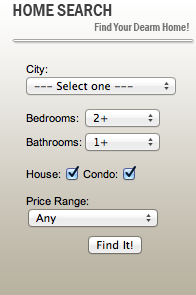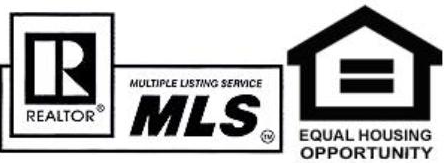410-829-6533
Darlene Wheatley Real Estate Professional
Realtor® with Benson and Mangold Real Estate - Come Home to the Eastern Shore of Maryland
Frequently Asked Short Sale Questions

Q - What is a short sale?
A- A short sale in real estate occurs when the outstanding obligations (loans) and cost of selling are greater than what the property can be sold for. Short sales are a way for home owners to avoid foreclosure on their homes and still be able to pay off their loan by settling with their lender.
Q Do I qualify for a short sale?
A- Lenders vary in their requirements. Your first step should always be to contact your lender. However, most lenders require the following:
1. Your payment is delinquent or is about to be. Most lenders will not work with home owners who are successfully making or can continue to make their loan payments. Each lender s policy is different, so if in doubt, check with your lender. Some will permit a short sale with no delinquency.
2. You have a qualifying hardship. Examples that qualify are divorce, loss of a job, medical bills, excessive travel time to a job, etc.
3. You have no other major assets. Lenders who see home owners with large bank accounts or assets are less likely to cooperate on a short sale. Retirement funds are not typically considered as an asset unless sizeable.
Q Do I have to be delinquent to do a short sale?
A- No. But as lenders vary in their requirements you should contact your lender and find out their policy. Unfortunately, most lenders are less willing to settle if the loan is current without a cash contribution or promissory note.
Q How long does it take to do a short sale?
A- There are several stages to the Short Sale process which can be lengthy. The typical sale takes 5-7 months from start to finish. Here are the stages of a short sale:
1. The first stage requires the home owner to gather all the documentation that your bank will require. This stage shouldn’t t take longer than a few days. Please review the section on short sale paperwork for the required documentation. Some banks require that their unique forms be used as well. Please contact us so we may provide to you your bank s forms.
2. Once you have all your paperwork completed, stage two is simply contacting us to schedule an appointment to see your home, complete the listing and place your home for sale.
3. The third stage involves aggressively marketing your home and producing a ready, willing, and able buyer. This stage can take as little as a few days or as long as a few months. We will closely track the activity of your sale and make the necessary pricing adjustments to attract a buyer.
4. The fourth stage is the actual presentation of the offer to your bank. This is where our expertise and experience in negotiating Short Sales takes place. The negotiation and approval process can take anywhere from 30 to 120 days. Numerous phone calls, emails, and faxes are required between the lenders and our team (on average 60-90 days). If we are dealing with a single lender rather than multiple lenders, it is easier (although not necessarily faster) to obtain the approval.
5. The fifth and last stage to the Short Sale process is the period of time between Short Sale approval from the bank and the buyer closing on the home. Although the Short Sale addendum states the close will occur 30 days after bank approval, be aware that the banks typically push for a 2-3 week close. When possible we encourage all parties to accommodate the bank on this issue.
Q How do I begin a short sale?
A- First we recommend you get legal counsel and tax advice. If you are current on your payments, we suggest you check with your lender to determine if you must be delinquent to qualify for a short sale. Next, fully complete your paperwork as listed on Seller Overview of Homework Needed and contact our office. We will take it from there.
Q What if I don t have any money to pay the Realtor commissions?
A In a Short Sale transaction you, as the seller, do not have to pay the Realtor commissions or the closing costs. The bank covers these costs. Please note there is a possible exception - the banks may not pay for any unpaid HOA fees.
Q- Do you charge an upfront fee for taking my short sale?
A- No. Some real estate agents or companies may charge an upfront processing or retainer fee from the seller before beginning a short sale. We do not.
Q- Do I have to pay my HOA fees?
A- We strongly recommend that you do. HOA fees are an owners personal obligation. If they are not paid, it can result in credit damage, lawsuits, or other collection efforts. Also, Fannie Mae backed loans (as well as some other lenders) will not pay for unpaid HOA fees on a short sale. A few lenders will, but they are in the minority. This can inhibit the closing of a short sale unless one of the parties (seller or buyer) can pay off the debt at close.
Q Are there any tax ramifications to a Short Sale?
A- When you complete a short sale, you will receive a 1099-C which stands for Cancellation of debt. On a foreclosure you will receive a 1099 A which stands for Abandonment of secured property .The Mortgage Debt Relief Act of 2007 generally allows taxpayers to exclude income from the discharge of debt on their principal residence for their original mortgage amount. Debt forgiven through short selling as well as mortgage debt forgiven in connection with a foreclosure, qualifies for the relief. This provision applies to debt forgiven in calendar years 2007 through 2012. Up to $2 million of forgiven debt is eligible for this exclusion ($1 million if married filing separately). For more information go directly to the IRS website at IRS.gov and do a keyword search of Mortgage Debt Relief Act to view their FAQ on the subject.
Investors need to be aware that this Act covers principal residences only. However, whether foreclosing or short selling the tax issue will need to be addressed by the investor. Generally you should try to minimize the loss to the lender in order to minimize the taxable amount. That is best accomplished by a short sale. As always, we recommend that you seek professional tax advice before any decision to begin a short sale or before foreclosure.
Q- Are there any credit ramifications to a Short Sale?
A - This question is difficult to answer as a variety of factors compose a credit score. Here is what we can tell you, the initial damage to your credit comes in the form of late payments. If you go 30+ days behind on your mortgage payment, your bank has the right to report that to all of the credit bureau s. If reported, late payments do have a direct affect on your credit. After going through a Short Sale or a Foreclosure, most people have 30, 60, and 90+ day late payments reporting on their credit report.
When the actual Short Sale is completed, banks have different methods of reporting a short sale. Most will reflect that your account was paid for less than the full amount. Some lenders will reflect on your credit report account settled. We do not know how each individual lender will report it. This is simply the most common language used. If your home were to go to Foreclosure you would most often see the bank report Foreclosure on your credit report.
Credit experts will agree that neither a Short Sale nor a Foreclosure is favorable to your credit or credit score, however, the impact of a Foreclosure is much worse. We strongly advise you to work with a Credit and Credit Scoring Expert for more specifics on this topic, and ways in which to improve your credit after the Short Sale is complete.
Q Why do banks agree to a Short Sale?
A Generally banks have found that it is more cost effective to do a Short Sale rather than foreclose on a home. Banks are not interested in owning real estate. While banks do take a loss on a Short Sale, foreclosing on a home can cost the bank 10%-20% more.
Q- I am behind on my payments. How long until the bank forecloses?
A It varies. Most notes (the I.O.U. that you signed when you took out the loan) give the bank the right to file a notice of default as soon as you are 30 days behind on your mortgage. While they have this right, most lenders do not file for a trustee s sale (the legal process to foreclose) until you are 90 days or more delinquent. From the date of filing for a trustee s sale, there is a 91 day period between filing and the actual foreclosure sale or trustee sale . Therefore it often six months or more from the first missed payment until foreclosure. We can often postpone the trustee sale if we are mid-negotiation on a short sale contract.
Q- When should I start the short sale process?
A The sooner the better. Once you can no longer pay the monthly mortgage amount or see that you soon will not be able to and if you do not wish to pursue any other lender remedies (loan modification, etc.) begin immediately. The more quickly you act, the better the odds for a successful short sale.
Q- I am thinking of filing bankruptcy or doing a loan modification in addition to trying to short sale my home. Is that a problem?
A- Yes as either of these will halt a short sale. Loan modifications should be done before a short sale, especially if you wish to keep the home. If the loan modification fails or does not resolve your ability to retain the home, then you should begin a short sale immediately thereafter.
If you are filing bankruptcy, you should receive legal counsel on whether to do that before or after completing a short sale. Most attorneys recommend doing the short sale prior to the bankruptcy. However, circumstances may vary. Even if you file bankruptcy, you still have not resolved the ownership issue, merely the debt. The home will still need to be sold through a short sale or disposed of through foreclosure. As no lender will process a short sale if you file for bankruptcy during the short sale process, we cannot take a short sale client who is in the midst of bankruptcy or plans to file during the short sale process.
Q Do all short sales get approved?
A We cannot guarantee that we can close every short sale. Anyone who promises that is misleading you. Sometimes the banks will demand an unreasonable cash settlement from the borrower, have inflated ideas about market value, or will not halt a trustee s sale. Every loan has potentially three entities that must approve the short sale: the servicer, the investor, and the mortgage insurance company. Any one of them can dictate terms.
Q Can the lender pursue me for the amount forgiven?
A- This is a very complex question, and one best answered by a real estate attorney familiar with Maryland's Anti-Deficiency Statutes.
However, refinancing the loan or taking cash out from a refinance complicate these issues. The law is not clear in whether a refinanced purchase money loan is subject to the anti-deficiency statutes. Also, the lender could choose to sue on the note rather than foreclose. Additionally, banks and private mortgage insurance companies may establish policies that are in conflict with our statutes because not all states have these types of statutes.
Be aware that most Home Equity Lines of Credit (HELOC) are not just secured to your home; they are also personally backed by you. What this means is that foreclosure will not eliminate this debt.
It is our belief that home owners will be dealing with their HELOC lender either before foreclosure (a short sale) or after (foreclosure) and that in most cases they are better served to negotiate a settlement with them through a short sale. However, we are not attorneys nor is it our intention to provide legal advice. Please consult a qualified attorney to discuss the path best for you prior to beginning a short sale.
Q Can the lender ask me to sign a note or pay cash to settle the debt?
A- Yes. They can ask, but asking does not compel the owner to agree. They may ask even on owner occupied purchase money loans, due to bank or Private Mortgage Insurance policies. Always contact an attorney or counseling service in your state familiar with the Short Sale Process.
Q- Can I sell my home to a relative?
A Probably not. Most lenders will ask all parties to sign an Affidavit of Arm s Length Transaction. This generally states that the parties cannot be a family member, business associate, or share a business interest.
Q I haven’t filed taxes for last year. Can I still do a short sale?
A Yes. Understand that the more missing pieces, the tougher the approval process. But we have included waivers for any documentation that is unavailable. We will submit the waiver in place of the required paperwork. This should not be used as a substitute however, for any available documentation. The more fully we provide documentation, the quicker the process and the greater the likelihood that the short sale will be approved.
Q What are the most common mistakes on a short sale?
A Waiting too long to start the process, failing to obtain legal counsel when needed, not supplying us with a complete package, and filing bankruptcy or electing to loan modify in the middle of a short sale.


